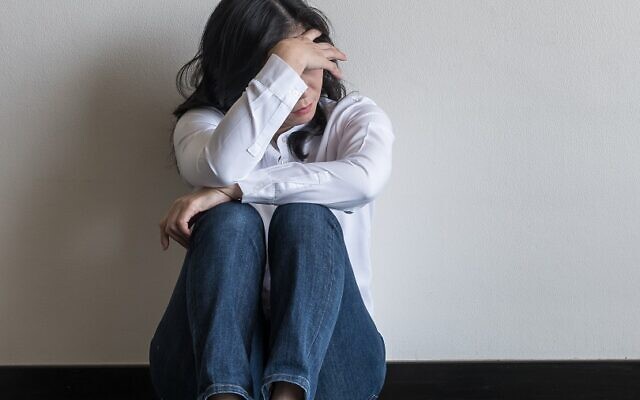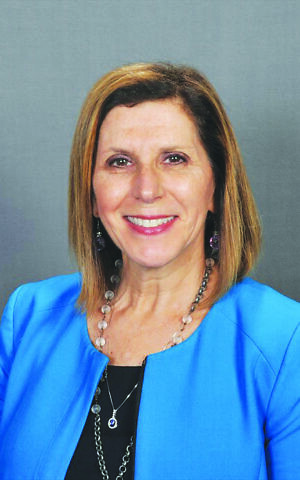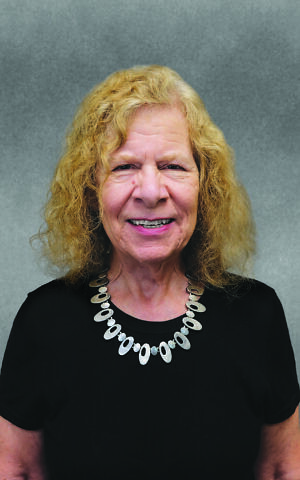JF&CS Address Domestic Abuse Violence
Jewish Family & Career Services’ program Shalom Bayit provides counseling support and guidance for those who are dealing with various types of abuse.

With her five-week-old son and his diaper bag in tow, Robin Feldman walked out of her Chicago home in October 1993 and never turned back. She had found the strength to leave the abusive marriage she had been in for almost two years.
Weeks earlier, she had spoken to her father about the problems she was having in her marriage. She could no longer contain her concern and, frankly, her embarrassment after her husband screamed at her on a New York City street filled with pedestrians. On the night she left, a therapist issued her a Tarasoff warning, invoking a law that requires psychologists and other mental health professionals to warn people of threats made against them by clients.
According to Wendy Lipshutz, LCSW, the Shalom Bayit (Peace in the Home) program director at Jewish Family & Career Services, the Jewish community is not immune to domestic abuse. “Jewish women have suffered in their own homes, and our goal is for the silence to completely disappear one day. We in the Jewish community can no longer pretend that abuse is not occurring,” Lipshutz said.
Lipshutz recalls telling the story of a woman she calls Sarah. Even with her tenure in the field, Lipshutz herself felt reluctant to share this woman’s story of abuse on the bimah at her temple in Atlanta, fearing those listening could mistake Sarah’s situation as her own or that of a friend or family member. Feeling fortunate that this saga was not hers, Lipshutz has since gone on to share Sarah’s story and many others as she speaks up for those who are suffering.

In Atlanta, Shalom Bayit provides counseling support and guidance for individuals who are facing physical, emotional or sexual abuse and for those who have experienced abuse in the past. The program provides short- and long-term direct assistance for safety and healing, including individual counseling, safety planning, referrals, and support groups.
Shalom Bayit also works hard to dispel the myth that abuse does not occur in Jewish homes and to educate the community about the existence of abuse in all religions, economic groups, educational levels, and lifestyles. Lipshutz shared that the program sees close to 200 people each year and 43 percent of their clients are Jewish.
Shalom Bayit started with a shocking article in the Atlanta Jewish Times in 1992 in which JacLynn Morris, a past JF&CS board member, published her personal story of abuse. It was the first time in Atlanta anyone had publicly acknowledged that family violence indeed happens in the Jewish community.
Jewish women have suffered in their own homes, and our goal is for the silence to completely disappear one day. We in the Jewish community can no longer pretend that abuse is not occurring.
Lipshutz points out that signs of abuse do not always show up as expected. Frequently, one partner feels isolated, losing contact with family and friends, which effectively takes away any support system. Financial abuse often leaves the victim without any information on their family’s finances, so they are forced to depend on their partner. Control is a huge factor in abuse, and in verbal abuse, the abuser often belittles their partner, gaslights them and causes the victim to blame themselves for the couple’s problems. More physical manifestations include blocking doors, use of weapons or threats, punching, kicking, pulling hair, and abusing children or pets.
Jewish Women International, one of the leading national Jewish organizations working to end violence against women and girls, conducted research in 2021 to analyze Jewish survivors’ needs and found U.S. Jewish communities substantially lacking in safe shelter, legal services, acknowledgement, and support. Their research report, the National Needs Assessment of Domestic Abuse in the Jewish Community, offers recommendations for new programs, collaborations, and funding priorities to ensure that Jewish survivors can safely remain and thrive in their respective communities.

Legal representation — addressing such complex issues as child custody, divorce, and equitable financial distribution — was identified as the top resource gap for people leaving abusive homes. The report found that pro-bono lawyers have been an inadequate resource to meet the long-term legal needs survivors face. In many cases, survivors are left to represent themselves. Legal work in the Jewish community is further complicated by a husband’s ability to withhold the get or religious divorce decree as a means of control over his spouse.
Financial independence and self-sufficiency is another challenge facing abuse survivors. JWI recommends jobs that allow for flexibility, given survivors’ unique challenges. Also, better access to affordable childcare, transportation, and services that enable survivors to work outside of the home in traditional 9-5 workplaces are needed. In their outreach to Jewish communities, JWI suggests developing a trauma-informed skills training program tailored to the strengths and assets of each participant, as well as a commitment by financial institutions to provide support, low-interest loans, cash assistance, and other services that impact long-term economic security. In the financial realm, survivors need mentorship and connection with others as they work to enhance their economic security.
Other critical needs cited in the report include additional transitional housing, outreach to children who have been in the home and experienced or witnessed domestic abuse, and more training for rabbis and cantors so they feel more confident in supporting survivors. JWI also proposes the creation of a national umbrella organization to support all Jewish domestic violence providers with specialized trainings, advocacy, and support, as well as connecting advocates through conferences, newsletters, virtual gatherings, and events.
Today, Feldman is active in several Jewish organizations, including JF&CS. After several years in and out of court with her husband – and many restraining orders later – she speaks with those needing advice and continues to advocate for others experiencing abuse. She credits Shalom Bayit with helping her overcome the trauma she experienced many years ago.
Feldman is the event chair for this year’s event, “Empowering Survivors: Celebrating 30 Years of Shalom Bayit,” which will be held on Oct. 12 at Sandy Springs City Hall. All proceeds will benefit survivors of domestic abuse and the organization.
For event details and to attend, visit https://give.jfcsatl.org/shalombayit30



comments